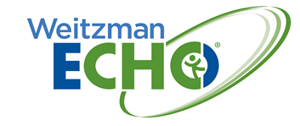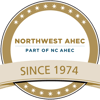Weitzman ECHO Advanced Primary Care, an interactive psychiatry learning series for rural medical providers, behavioral health providers, and care team members, starts next week!
 Weitzman ECHO Advanced Primary Care
Weitzman ECHO Advanced Primary Care
A Free Continuing Education Learning Series for Rural Providers
Adult Psychiatry Module Starts Next Thursday!
Thursday, November 17, 2022
3-4pm ET / 12-1pm PT
Below, read what three of the expert faculty have to say about Advanced Primary Care and what it means for them and participating providers.
What psychiatry-related health issues that you see in your practice does the ECHO module address?
Lei McMiller, LMFT: The health issues that are going to be covered in this program and that I often come across in my practice are anxiety, depression, mood disorders, personality disorders, and PTSD, to name a few.
Matthew Huddleston, MD, MPH, AAHIVS: I’ve seen many similar challenges and also see patients with substance use disorders, burdensome polypharmacy, health inequities, and stigma. This ECHO program helps to deepen the understanding of the conditions afflicting our patients and some of the tools we can better use to ease that suffering.
Raghuram Bhat, MD, MA, FAPA: It is not uncommon for patients I see in my private practice to have been treated for years in primary care under an inaccurate diagnosis. This program intends to provide some basic tools to reasonably and accurately assess primary care patients for a primary diagnosis, along with providing options for an initial medication trial.
What unique perspectives do you bring to these conditions and this ECHO?
Dr. Raghuram Bhat: I have worked in dual diagnosis (addiction and psychiatry) settings at various levels of care. While I see patients in my private practice, I also provide consultation to primary care providers in rural and underserved areas, which helps give a sense of their unique resource limitations.
Lei McMiller: As a behavioral health provider, I have experience working with individuals from many diverse backgrounds and settings. My specialty is caring for patients with substance use challenges, which may affect their physical health and their capacity to seek assistance.
What is your favorite part about being faculty for this ECHO program?
Dr. Raghuram Bhat: One of my favorite aspects is the opportunity to share evaluation and treatment practices that can then help patients who may not have otherwise had access to such care.
Dr. Matthew Huddleson: On top of the tools and knowledge base given, I most enjoy the sense of community that an ECHO program can provide, how we are all working towards the same goals, and how we can share experiences and best practices with each other, recognizing we are not alone in our efforts and challenges.
The ECHO starts soon, so register now!
This ECHO is offered as part of the Weitzman Institute’s project for HRSA’s Telehealth Technology-Enabled Learning Program (TTELP), which is designed to utilize Project ECHO to improve rural health outcomes.






